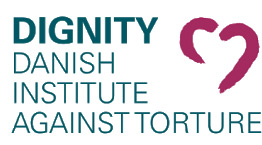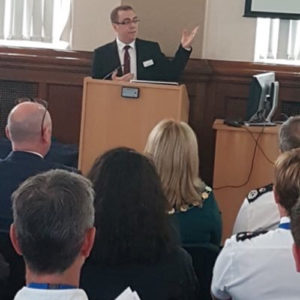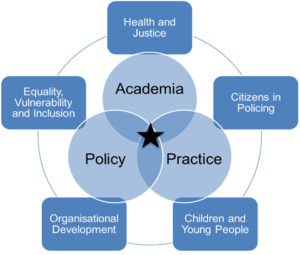Exploring synergies within volunteering in law enforcement and public safety in the UK and Japan

Funded by the Economic and Social Research Council (ES/S014268/1), the purpose of this project was to create a new partnership between UK and Japan-based academic and professional networks in the field of volunteering in law enforcement and public safety, form lasting links, and establish a foundation for collaboration beyond the research.
The project hosted the first International Conference on Volunteering in Policing, in Birmingham, UK in November 2019. The event included a range of academic speakers from the UK, USA, Ireland and Japan. As part of the programme, Professor Ross Wolf (University of Central Florida) delivered a keynote talk on ‘Reserves and Auxiliary Police in the United States’, Dr Kimihiro Hino (University of Tokyo) presented on ‘Plus Bouhan: A new approach to protect children from crime in Japan’, Dr Matthew Callender on ‘Exploring synergies in volunteering in policing and public safety between the UK and Japan’ and Dr Iain Britton on ‘Setting an international research agenda for citizens in policing’. More than 60 delegates attended the event, including a diverse mix of academics, professionals and practitioners in policing, crime prevention and volunteer management.
Citizens in policing national pilot evaluations

Funded by the Home Office Police Transformation Fund, this project involved a national piloting programme of new initiatives with volunteers in policing across England and Wales. In total, 17 pilot projects in 24 police forces were evaluated to identify good practice and innovations across forces. The work sought to research and develop models of attraction, specialisation and leadership in the Special Constabulary. The projects also included several national surveys, and evaluations of the Volunteer Police Cadets and Mini Police programmes. The findings were disseminated at a series of national workshops and events.
Developing mental health treatment requirement practice manuals

Funded by NHS England, this project involved the production of two practice manuals to support the development of new and emerging sites with Community Sentence Treatment Requirement programmes. The first manual was aimed at Clinical Leads in sites and the second at Primary Care Mental Health Treatment Requirement (MHTR) Practitioners to support the development of MHTR pathways, processes and protocols.
Both manuals were reviewed by the CSTR Chairs, Clinical Leads and Primary Care Practitioners. They were circulated to the national CSTR programme board who has in turn shared it with partner agencies (inc. NHS England and NHS Improvement, and Her Majesty’s Prison and Probation Service) for review and wider comments. Finally, the manuals were also reviewed by the NHSE/I clinical reference group.
Supporting place-based leadership development in Africa and Central America

The IPSCJ were commissioned by DIGNITY (Danish Institute Against Torture) to conduct an evaluation of the emerging individual and collective impact in Nakuru County, Kenya achieved by merging a Place-Based Leadership Development (P-BLD) Programme with Intersectoral Urban Violence Prevention (IUVP). The study demonstrated that the programme had positive impacts on participants mindsets and perceptions of leadership and the programme led to significant changes in Nakura and Naivasha in the way violence was addressed. View the report at Dignity.dk. The IPSCJ were then commissioned by Dignity, to assist in the production and editing of a facilitators guide, authored by Dr Rob Worrall, to address the challenge of scaling up intersectoral leadership development in DIGNITY’s IUVP programmes in East Africa and Central America.
Evaluation of women’s health services for perinatal women in HMP Peterborough

Working with NHS England (East), this project reviewed the effectiveness of healthcare services provided to women who have recently given birth or who are pregnant at HMP Peterborough. The scope of this project was to assess HMP Peterborough’s compliance with three of the ten elements of the Birth Companions Birth Charter. Birth Companions are a Charity that run services in women’s prisons across England and campaign to improve the care of women and babies who experience multiple disadvantages. In addition to the perinatal aspect of the research, the IPSCJ were also commissioned to establish what services, care and support do all women need who are being released from HMP Peterborough to a Cambridgeshire address.
Public perceptions of crime and anti-social behaviour in Northamptonshire

Working with Northamptonshire Office of Police, Fire and Crime Commissioner, this project conducted mass surveying of Northamptonshire. Members of the public living in Northamptonshire were asked questions about their perceptions of policing, crime and anti-social behaviour, worry and personal experience of victimisation and willingness to engage with policing. The Public Perceptions Survey had been in place for about ten years and throughout the report the analysis draws attention to changes over time. The project also included in-depth consultation with ethnic minority groups.





















